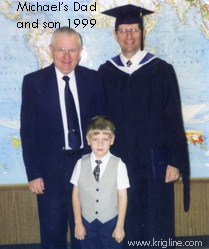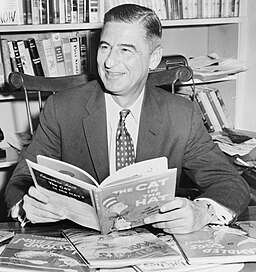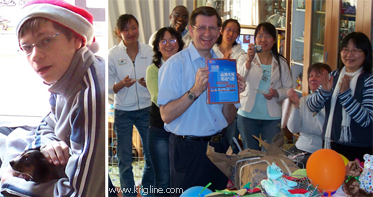↑Perseverance with Purpose
Five keys to hanging on, and prospering, in difficult times. ⇔
by Michael Krigline, January 25, 2015. www.krigline.com ⇔
Originally written for Bridges; revised and extended for the Xiamen International Christian Fellowship.
I am standing up here today, mainly because our pastor was scheduled to preach, and he is still dealing with visa issues in Mexico. Life is full of unexpected twists and turns, whether you have a close relationship with God or not. But this year I’ve been learning about the power to persevere, and the hope that it brings even in uncertain times.
To be honest, I originally crafted this message for The Bridge, where Life Talks are designed to give young professionals and college students practical moral lesson that point to the Lord without beating them over the head with scripture. It isn’t hard to admit that so many in this world—here and elsewhere—have lost their way. Their moral compass isn’t pointed at “true north” and indeed concepts of right and wrong seem to point in different directions at different times, and for a variety of reasons. One value that particularly seems to be missing is perseverance, as the average employee stays at a job for less than a year, and many marriages last about as long. The young people who come to The Bridge need more perseverance, but don’t we all?
At a conference a while back, someone asked our own Bill Job to account for the remarkable ways God has used him over the years. Paraphrasing his answer, Bill said that while he has done many things wrong over the years, the one thing he did right was simply not giving up. That’s a pretty good illustration of perseverance. One Bible passage that comes to mind on this subject is James 1. I’ll read a translation that uses “perseverance,” though the Greek word is more often translated patience or endurance. Maybe James sticks out in my mind because the New American Standard version—the version I cut my spiritual teeth on—says in verse 12: “Blessed is a man who perseveres under trial…” But I’ll read, starting in James 1:2, from the New American Bible:
Consider it all joy, my brothers, when you encounter various trials, for you know that the testing of your faith produces perseverance. And let perseverance be perfect, so that you may be perfect and complete, lacking in nothing. But if any of you lacks wisdom, he should ask God who gives to all generously and ungrudgingly, and he will be given it. But he should ask in faith, not doubting… (James 1:2-6 NAB)
I like quotations, especially when trying to point unfamiliar people to some aspect of the truth. So, here are some quotes on perseverance and its twin persistence, which I found on line. (I love www.brainyquote.com & www.quotationspage.com)
“Permanence, perseverance and persistence in spite of all obstacles, discouragements, and impossibilities: It is this, that in all things distinguishes the strong soul from the weak.” –Thomas Carlyle (influential Scottish author, historian, philosopher, 1795-1881)
“Nothing in this world can take the place of persistence. Talent will not; nothing is more common than unsuccessful people with talent. Genius will not; unrewarded genius is almost a proverb. Education will not; the world is full of educated derelicts. Persistence and determination alone are omnipotent. The slogan “press on” has solved and always will solve the problems of the human race.” –Calvin Coolidge (1872 – 1933; 30th US President, throughout the “roaring 20s”; 1923-29)
“Perseverance is failing 19 times and succeeding the 20th.” –Julie Andrews (English actress/singer, 1935- )
“In the realm of ideas everything depends on enthusiasm… in the real world all rests on perseverance.” –Johann Wolfgang von Goethe (German poet, 1749-1832)
James, Julie, Johann (and the others) clearly make perseverance sound extremely important, but what is it? I think a simple definition is that “Perseverance just means staying on track.”
When I think of “tracks” I think of my grandfather, who was an engineer in the golden age of railroading (i.e., before Americans just starting driving or flying everywhere). He got to go to places others just dreamed about, and up there at the front of the train, he “pulled” lots of people with him! After he retired, he even “pulled me” to many places, and I learned many valuable lessons at his side.  I also believe that the persistent prayers of my grandfather and grandmother are as responsible as anything human for my being in the Kingdom of God. When we visited them, we always went with them to church; when we ate with them, we always started with prayer. And they were always talking about missionary friends, whose photos and culturally-diverse artifacts graced my grandparents’ humble home. I saw faith and faithfulness in their lives, year after year, and maybe that kept me from fearing “different cultures” when God asked me to first board a plane, bound for service in a distant land.
I also believe that the persistent prayers of my grandfather and grandmother are as responsible as anything human for my being in the Kingdom of God. When we visited them, we always went with them to church; when we ate with them, we always started with prayer. And they were always talking about missionary friends, whose photos and culturally-diverse artifacts graced my grandparents’ humble home. I saw faith and faithfulness in their lives, year after year, and maybe that kept me from fearing “different cultures” when God asked me to first board a plane, bound for service in a distant land.
“Perseverance just means staying on track.”
I like this definition because perseverance is about the journey, not the destination. When you board a train in Xiamen, you and the person next to you could end up at very different destinations, because either of you could change trains at any number of places along the railway. But you won’t end up where the rails don’t run. And you will only end up somewhere good if you stay on track. So perseverance recognizes limitations, opportunities, and even the need to make changes; but perseverance doesn’t give up.
Today, I’m going to give you five keys to perseverance, and this is the first one:
1. Perseverance means to stay on track, but be willing to transfer to a different train (and remember that tracks imply both limitations and freedom).
That last part, about both limitations and freedom, means that we must understand our limitations—the tracks can’t take you where they don’t go; and if you know nothing about computers (for example), you won’t become a successful computer programmer. But within your limitations, there are many, many opportunities—many destinations that the track CAN take you.
Those of us who are Christians can easily understand the intersection of limitations and freedom, for we are told that “the gate is narrow and the way is hard that leads to eternal life” (Matt 7:14). The pilgrim’s road is not easy; ignore the limitations and stray just a little from the path, and the consequences can be grave. But at the same time, Jesus promises that “if the Son sets you free, you will be free indeed” (John 8:36). There is liberty in the path of obedience; in fact, if you want true eternal-life-giving liberty, you can find it only within certain limitations. The One who paid so dearly for our freedom, he is the One who sets out our course, and who sometimes puts hurdles in our paths.
I’ll get to the other keys in a while, but I want to tell you a story.
There’s no indication that Dr. Seuss was a Believer, but when I think of perseverance, his name readily comes to my mind.
 Dr Seuss (1904-1991)
Dr Seuss (1904-1991)
Dr. Seuss may not be very famous in China, except for movies like The Grinch and Horton Hears a Who—both of which can be shown to a general audience, yet easily followed up with discussion questions that point to the Truth. Chinese audiences are just starting to find out about Dr. Seuss, but if you were an American child, you would know exactly who he is. For one in four American kids, their first book is a Dr. Seuss book.
This famous author’s real name was Theodor Seuss Geisel, so I’ll call him Ted, or Dr. Seuss.
At the time of his death (at the age of 87, in 1991), Ted had written and illustrated 44 children’s books. Over 20 million copies, in 15 languages had found their way into homes and hearts around the globe. Wikipedia says that 16 of the top 100 children’s books (in English) of all time were written by Dr. Seuss, whose popularity continues over 20 years after his death. His stories have also inspired a dozen TV specials, a Broadway musical, and (so far) four major motion pictures (as of 2014, these movies alone had grossed over $1.1 billion—wiki). He also won many awards, including two Academy Awards, two Emmy awards, and the Pulitzer Prize. I believe we would all agree that Dr. Seuss was successful (at least in the world’s eyes)!But his legendary success didn’t come automatically, or overnight. He was fired from his first writing job, as editor at his college humor magazine, but (persevering) he kept writing for the magazine using the nickname “Seuss.” His dad wanted Ted to become a college professor, but studies bored him; he started working on a PhD at Oxford University, but (failing again) he dropped out. But, to please—or tease—his father, Ted added “Dr” to his pen name—“Dr Seuss” was born!
Ted wanted to be a cartoonist, and some of his early cartoons were published in popular magazines. His career got off to a good start, but two years after he left Oxford the Great Depression hit—a time that helped lots of people develop perseverance. Life was hard, and to support himself and his new wife, he created advertising campaigns, esp. for Standard Oil—ultimately for 15 years. Fifteen years.
So, by the mid 1930s he still wasn’t a cartoonist, but he was good at drawing illustrations and advertising had made him relatively successful. In fact, he and his wife (who never had children) were wealthy enough to travel to 30 countries together before 1936. He had illustrated a children’s book, and then created his own in 1932, but no one would publish it.
Ted was now in his thirties, having failed or “gotten off track” time and again. Most of us would have “given up” on the dream of writing children’s cartoons. And if Ted had just gone back to what he was good at, he could have lived a “normal” happy life. But you and I would have never heard of him, and millions of children would have been deprived of a wonderful author, and a love of reading.
But Ted persevered. On the way back from Europe in 1936, the ship’s rhythmic engines inspired him to create another kids’ book. You can almost hear the ship’s engines in the title: “And to Think That I Saw it on Mulberry Street.” The first publisher rejected it, as did the second and third.
Put yourself in Ted’s shoes, and tell someone nearby how many publishers you would be willing to submit your work to. How many times would you be able to face their rejection without giving up hope?
Later, Dr. Seuss couldn’t even remember how many times he had been rejected—somewhere between 25 and 40! His widow later said it was 43. Most of us would have given up long before that. And this is why perseverance is so important.
As Thomas Edison said, “Many of life’s failures are people who did not realize how close they were to success when they gave up.” Everyone thinks that Edison invented the light bulb, but actually he didn’t—he just found a way to make it practical. Through almost countless experiments, he figured out what kind of filament would burn out slowly, and that a vacuum would help it stay lit longer. How did he know when he was “done”? It wasn’t just a matter of “whether or not the light came on” but how long it stayed lit. As I said, perseverance has to do with the journey, not the destination. And this applies to many things: inventions, starting a business, learning Chinese, overcoming a bad habit, and even Christian maturity.Edison also said: “Nearly every man who develops an idea works it up to the point where it looks impossible, and then he gets discouraged. That’s not the place to become discouraged.”
When things look bad, of course we get discouraged. Dr. Seuss said that he was very discouraged by all those rejections. After being rejected one more time, he was walking home to burn his manuscript. But he happened to run into an old College classmate who was now in the publishing business. Soon thereafter, this man’s company agreed to publish the book. Ted called that “luck” but I call it “Divine intervention.” Ted later said, “If I had been walking down the other side of Madison Avenue, I’d be in the dry-cleaning business today.” To me, this shows that hard work, perseverance and good ideas are not always enough. We all need a helping hand now and again. Could this be part of why God puts His children into churches? So, value your friends, freely lend a helping hand, and it never hurts to be on friendly terms with Almighty God!
Dr. Seuss’s story doesn’t end here. He wrote more books, and in World War 2 he served the army by making animated training films. Some of his work over the next 15 years was very successful, but his place in history didn’t arrive until 1956—20 years after that first book. A publisher decided that books for the youngest readers were too boring, and he challenged Ted to create a book too interesting for kids to put down, but using only about 250 “beginner” words. Ted thought he could do it in two weeks, but failed to finish it month after month. Nonetheless, he persisted for a year and a half, and when “The Cat in the Hat” was released in 1957, Dr. Seuss became the definitive Beginner Books author and illustrator.
I know that poetry—especially Seussian poetry—is difficult to understand to those for whom English isn’t a native language, but here’s a part of a Dr. Seuss story, related to perseverance:
“on you will go though the weather be foul.
On you will go though your enemies prowl…
On and on you will hike. And I know you’ll hike far
and face up to your problems, whatever they are.”
–Dr Seuss
Perseverance–my own experience
Our friends at the Bridge asked me to talk about perseverance because I’ve also had some experience with this topic myself.
 For example, at my graduate school, an MA degree in Teaching English as a Foreign Language normally takes two years. When I received my MA degree in 1999, the Dean pulled me aside. He and his wife had both been my teachers, so we knew each other. He told me, “Michael, you hold the record for earning this degree in the longest amount of time. You started 12 years ago, but you didn’t give up. Congratulations!” And of course, if I HAD given up during those 12 years of distraction and financial limitations, none of you would have ever heard of me; and I would have missed out on some wonderful friendships, and some pretty cool work here in China. I’m glad I didn’t quit.
For example, at my graduate school, an MA degree in Teaching English as a Foreign Language normally takes two years. When I received my MA degree in 1999, the Dean pulled me aside. He and his wife had both been my teachers, so we knew each other. He told me, “Michael, you hold the record for earning this degree in the longest amount of time. You started 12 years ago, but you didn’t give up. Congratulations!” And of course, if I HAD given up during those 12 years of distraction and financial limitations, none of you would have ever heard of me; and I would have missed out on some wonderful friendships, and some pretty cool work here in China. I’m glad I didn’t quit.
More recently, Vivian and I have needed a lot of perseverance during this past year. In April, I was told that my job at Xiamen University would end during the summer. They told me that according to new university goals, our department didn’t need foreign English teachers. I looked for a position in several other departments, but couldn’t find anything suitable. I applied to several other universities, both in Xiamen and even abroad. Either they didn’t find me qualified, or I didn’t find their program attractive enough to invest my time in. Each application was sent in hope, and each rejection was hard to bear. In June, a local company said they would hire me as an English trainer and consultant. Vivian and I had to go back to the US, get many costly documents, and take care of many steps to meet China’s requirements. Each step took time. I wondered if it was worth it. But something—which I’ll come back to later—something kept telling us that it was important to be in Xiamen during this season of our lives, even if our financial resources would be rather strained. (If nothing else, I’m glad we’ve been here to help XICF while Pastor Gabe has gone through all these trials.)
Before my XMU work visa expired, we bought return tickets (in faith and hope) and returned to the US. When the return date came, I still didn’t have a work visa. The best option was to return to China on tourist visas, which then required us to leave the country every 30 days, and pay a lot for all this travel. (You should see my stack of Gong An [immigration] registrations for the past six months!) After waiting, unemployed, over four months for the company to supply needed documents, I figured it was time to try something different—to put it in terms of my above “railroad tracks” illustration, it was time to transfer to a different train. Maybe I should have persevered a bit longer—but it is hard to know how long to persevere, and when to start looking for a different train. That’s why we need the Holy Spirit so much, and often He speaks to us loudest through the brothers and sisters we have a relationship with at church.
 So, I “switched tracks” after our early November “visa cruise” to Jinmen. Friends introduced me to a Xiamen training center, which offered me a job. Again, there were many papers to fill out, and I had to go back to Hong Kong to apply. There were times when my wife and I didn’t know from week to week if we were still going to be here. But we held on. We waited and we prayed. At least in terms of “staying in China,” we persevered. But after going to all that trouble, and after teaching only a few classes, the center’s landlord said the company had to leave his building. My boss couldn’t find an affordable place to move to, and closed the center. “Merry Christmas, you’re unemployed!” Yet, miraculously, I was allowed to keep my new residence permit, allowing us to stay here a while longer (and by God’s grace, we are very grateful that we can be here today to help out).
So, I “switched tracks” after our early November “visa cruise” to Jinmen. Friends introduced me to a Xiamen training center, which offered me a job. Again, there were many papers to fill out, and I had to go back to Hong Kong to apply. There were times when my wife and I didn’t know from week to week if we were still going to be here. But we held on. We waited and we prayed. At least in terms of “staying in China,” we persevered. But after going to all that trouble, and after teaching only a few classes, the center’s landlord said the company had to leave his building. My boss couldn’t find an affordable place to move to, and closed the center. “Merry Christmas, you’re unemployed!” Yet, miraculously, I was allowed to keep my new residence permit, allowing us to stay here a while longer (and by God’s grace, we are very grateful that we can be here today to help out).
As our plans failed time and time again, we persevered because we are operating under orders from One who sees the bigger picture. His plans have not failed, and God has never been wringing His hands, wondering what would happen next. Nor is it our job to “wring hands”! Our job is to get on board His train and let the Lord take us to places that others only dream about.
I told you I would give you five keys to perseverance, so here they come. During our uncertainties, these principles helped us stay the course, and to continue listening for that still small voice that says, “This is the way, walk ye in it.”
Keys to perseverance: 坚持的关键
1. Perseverance means to stay on track, but be willing to transfer to a different train (and remember that tracks imply both limitations and freedom). 坚持意味着保持在轨道上,但是愿意换乘到一列不同的火车上(并记住轨道既意味着限制、也意味着自由)。
2. Remember that life is seasonal (but that means that both good and bad times will pass). 记住生命是有不同季节的(但这意味着美好的季节会过去、糟糕的季节也会过去)。
Dr Seuss had seasons of success, and seasons of failure. During the 12 years it took me to get my MA, I had seasons of secular work, seasons of ministry, and seasons of study. During our 15 years in China, we’ve spent seasons in several cities. Most of my students have been wonderful, in season and out, but in one short season they were terrible. But I know that both good and bad times will pass. And my Dad’s advice has helped me persevere many times: “Son, you can endure anything if you know there is an ending date.” [Dr. Alan Krigline] Or as my grandfather often said: “When trouble comes, I remember that the Bible says ‘it came to pass,’ it didn’t come to stay.” [Rube Holmstrom]
3. Everyone fails; determine to be one of the few willing to get up and try again. 每个人都会失败;下定决心要作那少数愿意爬起来再次尝试的人之一。
On line, you’ll find that many great people have said something like this: “Our greatest glory is not in never falling, but in getting up every time we do.” [Emerson, Lombardi, Goldsmith, Confucius…]
You will fall. You will fail. You may be pushed down or intentionally tripped up. And yet only you can decide if you “will get up and try again.”
Jesus serves as an example of One who endured much, yet persevered.
The author of Hebrews said: “Therefore, since we are surrounded by so great a cloud of witnesses, let us also lay aside every weight, and sin which clings so closely, and let us run with endurance the race that is set before us, looking to Jesus, the founder and perfecter of our faith, who for the joy that was set before him endured the cross, despising the shame, and is seated at the right hand of the throne of God. Consider him who endured from sinners such hostility against himself, so that you may not grow weary or fainthearted…” (Hebrews 12:1-3 ESV)
Falling while outside God’s will should lead to repentance.
Falling within God’s will, may be a test of our perseverance, and may be a call to grow, perhaps by learning from our mistakes. It’s easy to complain when we fail; it is much harder to learn something from the experience. Failure isn’t the end, but maybe it is a time to evaluate and modify your goal.
4. You need a worthwhile goal—“a map” (but also celebrate the major steps that lead to that goal). 我需要一个有价值的目标——“一张地图”但要庆祝达到那目标的主要步骤)。
We just read that Jesus endured the cross for the joy set before Him. I love that passage. He was focused first on doing His Father’s will—this is what Jesus thought of ‘above all’ (John 17; Matt 26:39)—but I believe a huge part of that will was a joy-filled vision of a blood-bought bride, full of people from every nation, tribe and tongue, who had willingly humbled herself before the throne of heaven, received forgiveness and righteousness as free gifts, and thus were clothed in pure wedding garments designed for Heaven’s banquet table. In Jesus’ mind and heart, He had a worthwhile goal, and what joy that you and I were a part of it!
If your goal isn’t worthwhile, it won’t have the power to help you persevere. As I said to the Bridge’s young Chinese professionals: to me, a “worthwhile” goal is a goal that is bigger than “me and my own success.” As Jesus put it, “Seek first the kingdom of God and His righteousness” and “one’s life does not consist in the abundance of his possessions.” (Mt 6:33 & Lk 12:15) Hopefully I’m “preaching to the choir” here at church, but for many people “out there” it is a revolutionary thought to make major decisions NOT simply based on your own comfort, success or income level. Christians should know that there are much better things to live for.
I tell my students: “If you ask the wrong question, you will always get the wrong answer.” When trying to make major decisions, “What do I want to do?” is always the wrong question. As George McDonald said, we must deny self altogether as a ruler in our lives and instead ask, “What would the Living One have me to do?” [*1]
Once you have established worthwhile goals, you will fortify your strength to persevere if you take time to celebrate your progress along the way; don’t just wait until the goal is achieved. For example, in 2008, I had a textbook published in China. Writing it was a LONG process, and celebrating several times along the way helped me make to the end. I celebrated in 2004 when I got permission to include certain copyrighted materials; and celebrated in 2005 when a teacher agreed to test the materials in class; we celebrated in Dec 2006 (bought our son a puppy, actually!) when the manuscript was done; and in May 2007 when the contract was finally signed; and we threw a BIG party in April 2008 when the books were finally delivered. If you want to persevere, learn to celebrate along the way.
5. To persevere, you need a good “map and compass” (but a GPS is even better). 要坚持的话,你需要一个好的“地图和指南针”(但是全球定位系统更好)。
If you ever go hiking, or even visiting an unfamiliar city, you not only need a good map, but you also need a compass to tell you which way is north. The journey of life is no different. I believe your goals are your “map,” and your moral values are your “compass.”
A year ago at the Bridge, we started a series by mentioning several news items that made it clear that many people have lost their moral compass. Throughout the year, young people have heard short lectures (Life Talks) presenting timeless truths that can help us get back in touch with what is right and wrong. We talked about authentic beauty, fun, listening, knowledge, success, identity, wealth, community, direction, wisdom and many more. [You can listen to talks on these subjects at www.matb.org.]
There are many universal virtues. I saw a quote from Confucius that pointed to three—speak the truth, don’t yield to anger, and be generous. [“Speak the truth; do not yield to anger; give, if you are asked for little; by these three steps you will go near the gods.” —Confucius] All of those are also in the Bible, plus many more. Moses, the great Law Giver, said don’t steal or kill, don’t forget to rest, honor your parents, keep your word, put God first in your life. The list in Hebrews 13 says to love like brothers, show hospitality, remember those mistreated, sleep with only your wife/husband, don’t love money, be content with what you have. People in most cultures would agree that these virtues are good—even if many people do not practice them.
Did you ever notice that people in every culture know that some things are right and some are wrong? As we just saw, there is even wide agreement about these virtues from culture to culture. AND more importantly, we all know that we sometimes fall short of our own standards of right and wrong. Why? Evolution can’t explain this internal moral compass, because it shouldn’t be there. If “survival of the fittest” is life’s overarching rule, then “what is right” is whatever helps ME; but many of the world’s moral absolutes are designed to protect others. I believe this universal moral sense points to a God-given universal law; a moral compass that is embedded in our DNA.
Clearly, we need wisdom to know what to do–what is morally right and wrong–and without this wisdom, we can easily get lost.
If our goals are our map, and our moral values are our compass, I think wisdom is our GPS. A GPS is even better than a map and compass because it is a satellite view; the GPS of life is a higher view, an authoritative voice from One who understands the bigger picture. “When possible, make the first legal U turn…” Earlier, I told you that Vivian and I could persevere to remain in Xiamen, even without much income, because something was telling us that we belong here in this season of our lives. That “something” was my GPS, God’s Holy Spirit, telling me to “press on” because it fit into the bigger picture. We are starting to sense that our season in Xiamen is coming to a close, but only because the All-Wise Living One knows best how to use our lives in His bigger picture.
Where do we find wisdom? 我们到哪里寻找智慧?
That is a crucial question, and a very old question. The following was written about 4000 years ago, in Job—probably the oldest book in our Bible.
“But where shall wisdom be found? 然而,智慧有何处可寻?
And where is the place of understanding? 聪明之处在哪里呢?
Man does not know its worth… 智慧的价值无人能知……
It cannot be bought for gold, silver…or jewels…智慧非用黄金可得,也不能平白银为它的价值……贵重的红玛瑙,并蓝宝石,不足与较量;
It is hidden from the eyes of all living… 是向一切有生命的眼目隐藏……
Even Death says, 灭没和死亡说:
‘We have heard [only a] a rumor of it with our ears.’ ‘我们风闻其名。
’ [But] “God understands the way to wisdom…神明白智慧的道路,…
And he said to man, 他对人说:
‘Behold, the fear of the Lord, that is wisdom, ‘敬畏主就是智慧;
and to turn away from evil is understanding.’” 远离恶便是聪明!’”
[abbreviated from Job 28, in the Bible]
The Christian life begins with a holy fear and reverence for the Lord, joined with repentance (“turning away from evil”) and belief in the Gospel. This was Jesus’ first message, in Mark 1:15: “The time is fulfilled, and the kingdom of God is at hand; repent and believe in the gospel.” (ESV) Fear God, repent, have faith.
What is faith?
Someone said that “faith” is just a long obedience in the same direction.
Hebrews 11:1 says: “Now faith is the assurance of things hoped for, the conviction of things not seen.”
Augustine said: “Faith is to believe what we do not see, and the reward of this faith is to see what we believe.”
Oswald Chambers (author of My Utmost for His Highest) said: “Faith never knows where it is being led, but it loves and knows the One who is leading.”
Martin Luther King Jr said: “Faith is taking the first step, even when you don’t see the whole staircase.”
And his namesake, Martin Luther, said: “Faith is a living, daring confidence in God’s grace.”
So fear, repentance and faith clean out a place, so to speak, for the impartation of wisdom from on high. Like that little voice of the GPS in your phone or car, we can mute the Holy Spirit, but we do so at our own peril. “When possible, make the first legal U turn…” And if my GPS is God’s Holy Spirit, I believe God uses both prayer and scripture, as well as counsel from the Body of Christ, to guide me, sort of like that bus app on my phone, sometimes giving me several options, but always trying to get me to where He wants me to go. God has a satellite view, so He certainly understands the “bigger picture”!
If we ignore these universal virtues—if we ignore the universal moral compass and GPS—we might get rich/powerful/popular, you might still be able to persevere, but sooner or later I think you’ll look back and realize you are lost.
But there is joy for those who listen, just as there is freedom for those who obey.
I started today with James 1:2: “Count it all joy, my brothers, when you meet trials of various kinds, for you know that the testing of your faith produces steadfastness (perseverance).” (James 1:2ff ESV). My concordance said that the Greek word for this perseverance—ὑπομονή hupŏmŏnē 5281—is otherwise translated as endurance, constancy, patient continuance/waiting, and interestingly comes from the word for “cheerful” or “hopeful.”
For the joy set before Him, Jesus endured the cross…
Count it all joy, my brothers, when you meet trials of various kinds, for you know that the testing of our faith produces perseverance…
Before I close, here are Michael’s five keys to perseverance once again.
1. Perseverance means to stay on track, but be willing to transfer to a different train (and remember that tracks imply both limitations and freedom).
2. Remember that life is seasonal (but that means that both good and bad times will pass).
3. Everyone fails; determine to be one of the few willing to get up and try again.
4. You need a worthwhile goal—“a map” (but celebrate the major steps that lead to that goal).
5. To persevere, you also need a good “moral compass” (but a GPS—heaven’s wisdom—is even better)
I’ll close with Paul’s words in Romans 5: “Therefore, since we have been justified by faith, we have peace with God through our Lord Jesus Christ. Through him we have also obtained access by faith into this grace in which we stand, and we rejoice in hope of the glory of God. Not only that, but we rejoice in our sufferings, knowing that suffering produces endurance, and endurance produces character, and character produces hope, and hope does not put us to shame, because God’s love has been poured into our hearts through the Holy Spirit who has been given to us.” (Romans 5:1-5)
I preceded this speech with one of my songs, called “I’ll Press On”
This song was inspired by a classic novel called “Pilgrim’s Progress.” The story is an allegory of life. Pilgrim is a man trying to escape from the burden of his sin; his journey requires great perseverance. Many things tried to get him off track. He faces the difficult road upward over the mountains of temptation, past the swamp of selfish pleasure, through caverns of despair and storms of test and trial; he must resist Vanity Fair—an “amusement park” of distraction and fun that just wastes time and money. His destination is Heaven, and his compass is his Bible. (A “demo” recording of this song is links on the bottom of “Michael’s Music” page.)
I’ll Press On
by Michael Krigline 1989
There’s a road—it’s so well traveled, that no guide is ever needed,
You just follow close behind the throng as it travels on;
But in the opposite direction there’s a path that’s steep and foggy
It’s there behind the Man of Sorrows that you’ll hear the pilgrim’s song
You know the pilgrim’s road ain’t easy through the swamp of selfish pleasure
Between the mountains of temptation through the caverns of despair.
Oh sure there’s sunshine and there’s rainbows after storms of test and trial
But through the joy and through the sorrow the pilgrim keeps singin’ on
So when you find the journey easy take heed ‘cause you’re headed nowhere
Just past the lights of Vanity Fair there burns a fire you don’t want to see.
Look for the road that’s been less traveled marked with blood and pointing upward
Along the way of Him who wrote the song to lead the way to victory
Chorus:
I’ll press on when I am weary, I’ll press on though trouble’s near me
I’ll press on after I fall, and though my friends all stay behind.
Tis a cross, no bed of roses, that points the way to vict’ry,
So I’ll just keep my eyes on Jesus and press on.
Endnotes:
*1: “We must refuse, abandon, deny self altogether as a ruling, or determining, or originating element in us; it is to be no longer the regent of our action. We are no more to think ‘What should I like to do?’ but ‘What would the Living One have me to do?’” –George McDonald (quoted by CS Lewis, quoted by Phil Yancey, who continues…) “To answer that question becomes the central focus of a life of faith. CS Lewis answered the ques-tion in many forms. In the Chronicles of Narnia in which children lead the decisive battle against evil to regain the cosmos; in the Space Trilogy in which other planets brace themselves against the human stain; in his sermons and works of apologetics, all of which trumpet the message that ordinary men and women have a role to play; most of all, he answered it in his own life by serving with excellence and humility both, in the classroom, the pulpit, the writing study, and the home.” –Phil Yancey, What Good is God
Major sources of information:
• www.catinthehat.org/history.htm
• http://en.wikipedia.org/wiki/Dr._Seuss • http://en.wikipedia.org/wiki/And_to_Think_That_I_Saw_It_on_Mulberry_Street
• http://writelikerowling.com/2012/03/27/dr-seuss-and-rejection/
Other sources:
• Wiki image of Ted w Cat in the Hat, for website: Al Ravenna, New York World-Telegram and the Sun staff photographer – Library of Congress Prints and Photographs Division. New York World-Telegram and the Sun Newspaper Photograph Collection. http://hdl.loc.gov/loc.pnp/cph.3c16956. http://en.wikipedia.org/wiki/Dr._Seuss#mediaviewer/File:Ted_Geisel_NYWTS_2_crop.jpg
• Edison: http://en.wikipedia.org/wiki/Incandescent_light_bulb#mediaviewer/File:Thomas_edison_gl%C3%BChbirne.jpg (Public Domain) [http://commons.wikimedia.org/wiki/File:Thomas_edison_gl%C3%BChbirne.jpg]
• Other photos are my own (including scans)
Bible versions used:
–Unless otherwise noted, scriptures were probably quoted from the ESV: The Holy Bible: English Standard Version. 2001 Wheaton: Standard Bible Society.
–The New American Bible. National Conference of Catholic Bishops, & United States Catholic Conference. Administrative Board. (1996). Confraternity of Christian Doctrine.
Here’s the whole text from Job 28:12ff, abbreviated above: “But where shall wisdom be found? And where is the place of understanding? Man does not know its worth, and it is not found in the land of the living. The deep says, ‘It is not in me,’ and the sea says, ‘It is not with me. ’ It cannot be bought for gold, and silver cannot be weighed as its price. It cannot be valued in the gold of Ophir, in precious onyx or sapphire. Gold and glass cannot equal it, nor can it be exchanged for jewels of fine gold. No mention shall be made of coral or of crystal; the price of wisdom is above pearls. The topaz of Ethiopia cannot equal it, nor can it be valued in pure gold. “From where, then, does wisdom come? And where is the place of understanding? It is hidden from the eyes of all living and concealed from the birds of the air. Abaddon and Death say, ‘We have heard a rumor of it with our ears.’ “God understands the way to it, and he knows its place. For he looks to the ends of the earth and sees everything under the heavens. When he gave to the wind its weight and apportioned the waters by measure, when he made a decree for the rain and a way for the lightning of the thunder, then he saw it and declared it; he established it, and searched it out. And he said to man, ‘Behold, the fear of the Lord, that is wisdom, and to turn away from evil is understanding.’” [from Job 28]
Original content ©Michael Krigline, including photos if noted. For contact info, visit About Us. For privacy info or to make a contribution, see our Website Standards and Use Policy page (under “About Us”). [Titles that start with ↑ point to devotional articles that help us “look up”.]




